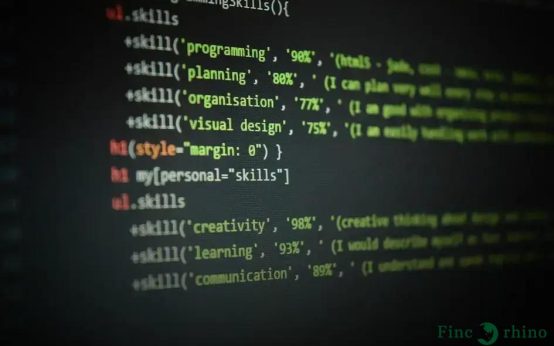House hacking is the practice of generating income from your own home. This approach can significantly reduce living costs and create passive income streams. However, like any investment strategy, house hacking comes with its unique set of challenges and benefits. As you navigate the advantages and disadvantages of house hacking, you’ll need to consider factors such as property location, housemates, and your long-term financial goals. In this article, we’ll delve into essential aspects of house hacking, including what it entails, its benefits, potential drawbacks, effective strategies, and if it fits your lifestyle.
What is House Hacking?
House hacking involves renting out parts of your home to generate income. It allows you to live in a property while your tenants help pay the mortgage. Often, homeowners convert basements, attics, or spare rooms into rental spaces.
One popular method is purchase a multi-unit property, such as a duplex, and live in one unit while renting out the others. This strategy reduces housing costs and can lead to significant savings.
For some, house hacking may mean renting a room to a long-term tenant, while others might opt for short-term rentals through platforms like Airbnb. Each approach has its own set of benefits and challenges.
Another option is partnering with a roommate to share expenses. House hacking emphasizes using space efficiently and cutting down on living expenses. Creativity is crucial, as homeowners find unique ways to monetize their property. Understanding local regulations about renting and property use is vital before starting.
Advantages of House Hacking
House hacking offers several compelling benefits for those looking to maximize their investment in real estate. One primary advantage is the potential for significant cost savings. By renting out part of your property, whether it’s a room or an entirely separate unit, you can generate a stream of rental income that offsets your mortgage payments and reduces living expenses.
Another benefit is the opportunity to build equity more quickly. As you use rental income to pay down your mortgage faster, you build equity at a pace that might be unattainable otherwise. This strategy can be a smart way for individuals to enter the real estate market without overextending financially.
House hacking also provides the chance to learn and gain experience in property management, maintenance, and tenant relations. This practical experience can be invaluable if you decide to expand into larger or additional investment properties in the future. Not only do you save money, but you also acquire skills that can lead to other opportunities.
Tax benefits should not be overlooked, as you may qualify for various deductions related to property management and expenses. These can help further reduce the overall cost of owning a home, making the endeavor even more profitable. The extent of these advantages can vary based on location and personal circumstances, but they often provide noteworthy financial relief.
Potential Drawbacks to Consider
Noise and Privacy Concerns
Living with others to save on housing costs can lead to noise issues. Shared spaces mean less privacy. Be ready for different living habits that might disrupt your peace.
Shared Responsibilities Might Cause Friction
Sharing your living space means sharing responsibilities. Who’s cleaning the bathroom or taking out the trash? Clear agreements are necessary, but conflicts may still arise.
Financial Risks
House hacking offers cost benefits, but also financial risks. If you rely on rental income to cover mortgage, any vacancy or late payment can impact your budget.
Potential for Property Damage
With more people using the space, there is increased wear and tear. Property damage, either accidental or intentional, might occur, adding to maintenance costs.
Legal and Zoning Issues
Check local laws about renting out parts of your home. Legal issues or zoning restrictions could limit your house hacking plans, leading to fines or forced evictions.
House Hacking Strategies
House hacking is a strategy that can be both lucrative and challenging, depending on your approach. One popular method involves purchasing a multi-family property, such as a duplex or triplex, and living in one unit while renting out the others. This approach allows for rental income to cover a significant portion of the mortgage.
Another strategy is renting out a room in a single-family home. This can be an easy entry into house hacking with minimal disruption. It’s crucial to consider privacy and select tenants carefully to keep living conditions comfortable.
Some people explore short-term rentals like Airbnb to maximize income. This requires more management and can face local regulations, but the financial rewards can be substantial if managed well.
In urban areas, converting unused spaces into functional rental units is a creative way to start house hacking. Think of converting a basement or garage into a small apartment. This often requires compliance with zoning laws and permits.
Financing options might include leveraging FHA loans, which can offer favorable terms for owner-occupied properties with rental income.
Balancing the pros and cons of these strategies involves understanding your financial goals, lifestyle preferences, and local market conditions. Tailoring the strategy to your personal situation is key to successful house hacking.
Is House Hacking Right for You?
Deciding if house hacking is right for you depends on your unique circumstances and goals. House hacking involves purchasing a property, living in one part while renting out other parts to generate income. This can help in offsetting mortgage costs and possibly creating an investment income stream.
Financial Relief
One significant advantage of house hacking is the potential for financial relief. By earning rental income, you can significantly reduce your living expenses. This approach is particularly beneficial if you have a mortgage, as the rental income can help cover mortgage payments and other housing costs.
Adaptability and Responsibility
It’s important to consider how adaptable you are to living with tenants and managing rental properties. Landlord responsibilities include maintenance and addressing tenant concerns, requiring time and effort. Assess how comfortable you are with this aspect of house hacking before diving in.
Personality and Lifestyle Fit
Your personality and lifestyle are crucial factors. House hacking is ideal for those who are flexible and comfortable sharing their living space. On the other hand, if you value privacy highly, the presence of tenants might be challenging.
Long-term Investment Goals
Think about your long-term goals. House hacking can be a great way to start in real estate investing. By building equity in your property and learning about the rental market, you may pave the way for future property investments.
Ultimately, weigh the pros and cons. Consider your financial goals, lifestyle preferences, and willingness to take on the responsibilities of being a landlord. House hacking is not suitable for everyone, but it can be a rewarding strategy for those committed to making it work.





